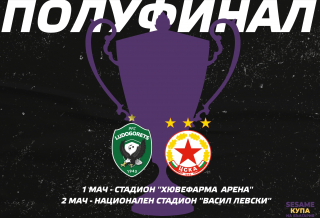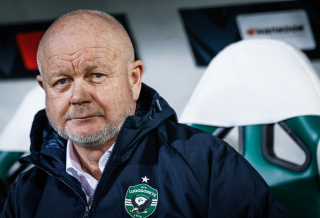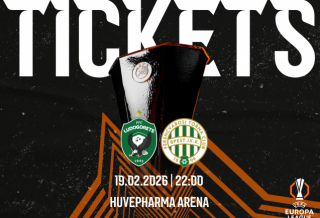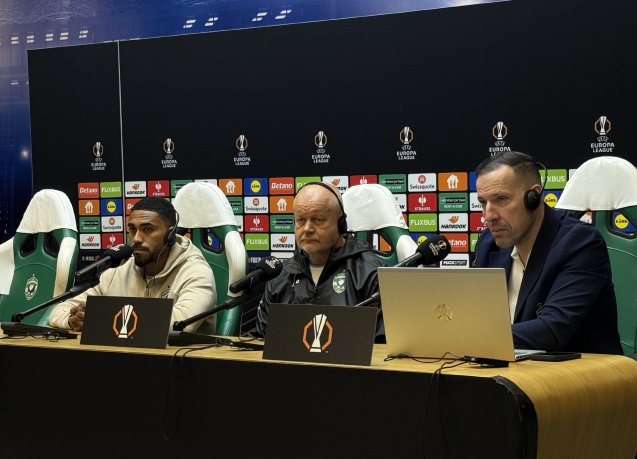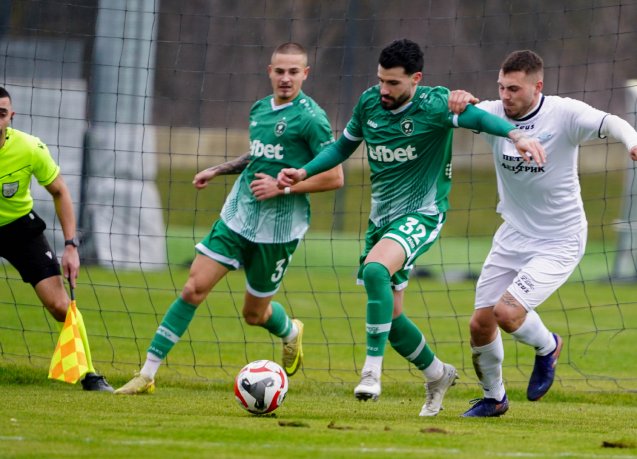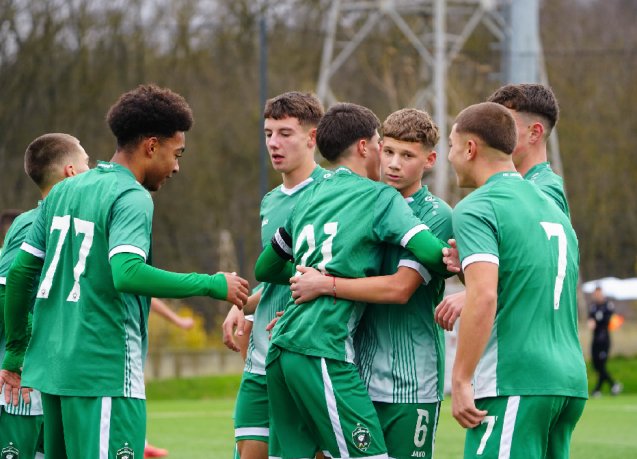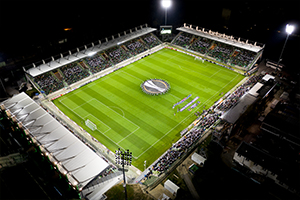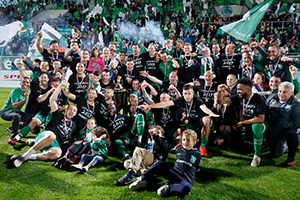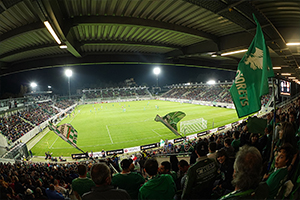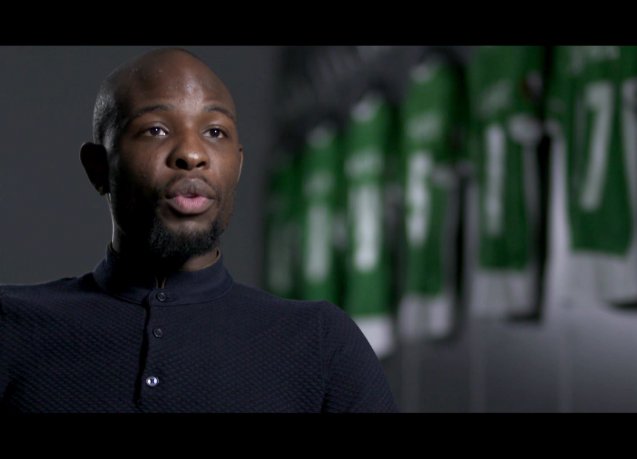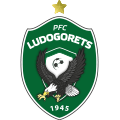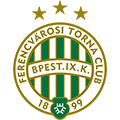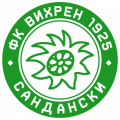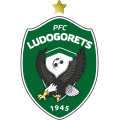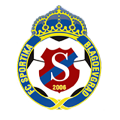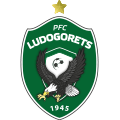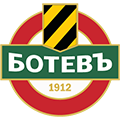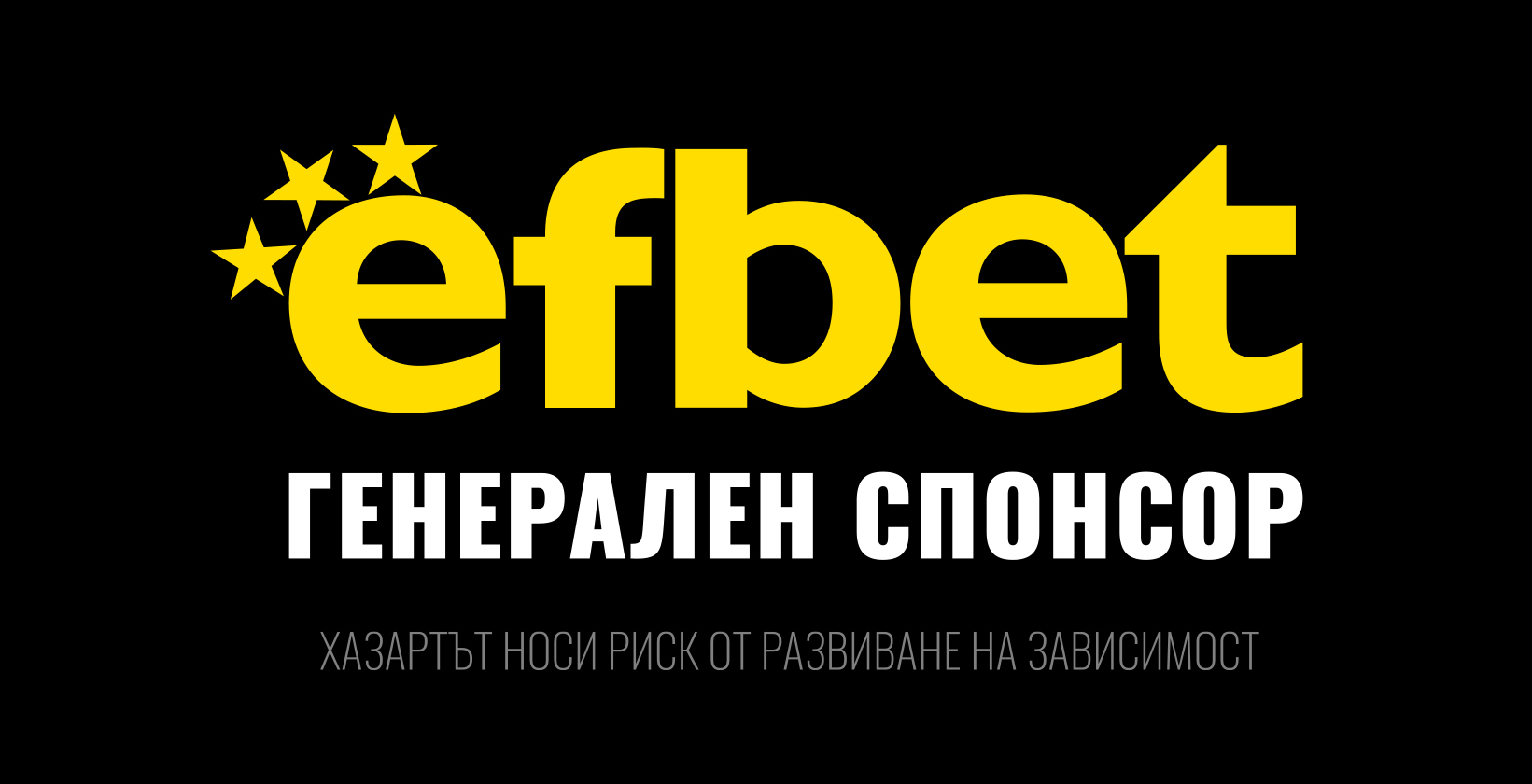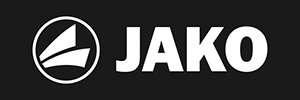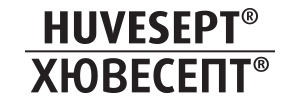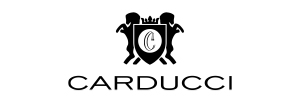Jody Lukoki gave an interview in the latest edition of the UEFA Europa League Survey. See what the Dutchman said about Ludogorec, Ajax, Europa League and his childhood.
Hello Jody. First, we want to ask you about your childhood and your first memories from your native country. How was it to flee war in Zaire [Editor’s note: The Democratic Republic of the Congo was known as the Republic of Zaire between 1971 and 1997] with your parents when you were just one year old with your twin brother? How was that?
For me, I don’t know how the feeling was because I was young, but if I look back now, I think it’s good to have a good life in Europe and at that time, the country was at war. It would have been too difficult to be brought up in [DR] Congo and I think my parents made the best choice to move to Europe and have a good life.
I think now at this moment we have a good life, things are very good and I’m happy. I’m a happy person.
Did your parents talk about that experience a lot?
Not a lot, but we know that it was hard at that time. It was [sic: would have been] difficult to grow up in Congo, so I think, as I said already, the best thing was to move to Europe. I don’t know why my parents chose Amsterdam, but I think I’m very happy that they chose Amsterdam because I had a good life there.
Tell us more about your earliest memories of football. How excited were you to start playing football as a child? Which were your favourite players and teams as a child?
For me I just started to play football. When you are young, you are just playing. You’re just playing outside and you kick the ball and then at one moment, you think, “Yes, maybe I can become a good player.”
Then you start to play with friends, you start to join a club. When people are telling you that you’re a good player, then you can believe that you can become a football player.
And I look, for me, Cristiano Ronaldo is the best. When I was young, when he played for Manchester United, I followed him a lot. I tried to do what he did. Manchester United was also my favourite team and it’s still my favourite team at the moment.
That’s how I started to play football. Then I joined Ajax and from Ajax everything started.
Tell us more about your childhood in Amsterdam, growing up there, the culture in the city and your friends there.
I have good friends and some of my family also lives in Amsterdam. To grow up in Amsterdam is very easy. The people are nice and when I joined Ajax, I had one coach, [Robin] Pronk, he’s a good coach, a hard coach, and in my second year at Ajax, Gery Vink was my coach for two or three years I think.
For me I think he’s the best coach that I’ve had. He opened my eyes and I realised that I could become a professional football player. If you play for Ajax at youth level, it doesn’t mean that you’ll become a professional player because a lot of players [there] don’t become football players. They stop or they do something else, or they continue with school.
But for me, he opened my eyes and made me realise that I could be a good player and now I play in the Europa League, I’ve played in the Champions League and after that, Frank de Boer was my coach, another good coach.
He brought me into the first team and from there everything started.
Tell us more about the famous Ajax football school, about your friends in the teams who are maybe famous players now. What was life like at the Ajax school?
As for the Ajax school, I think I understand why people say Ajax is the best because from a young age, they teach you how to play football and the system that the first team plays… From the youth team, they already play it, so if you go into the first team, you automatically already know what you need to do in your position,
And the players also know what to do as a team. So I think that makes it easy and you train every day, Monday, Tuesday, Wednesday free, Thursday, Friday, we train also on Saturdays and you have games,
So you’re busy with football all the time. They pick you up early from school, you do your homework also at the Ajax base, so I think the Ajax school is a good school.
Do you remember your first game for the Ajax first team?
In the first team?
Yes.
Yes, it was against Feyenoord. It’s a big game: Ajax v Feyenoord is a very big game and I remember that I had the ball, the ball was already out and I put it between one player’s legs. [inaudible interjection] Between the legs, in Dutch we call it panna [a nutmeg] and the stadium was very happy.
I remember my first game, it was a good one and we won, so it was good.
What do you remember from the games against Borussia Dortmund and Real Madrid over those years?
I know that Real Madrid was a tough game, but I only played around 15 minutes. But against Dortmund I played 90 minutes, what I remember was that Dortmund were very good. At that moment [Robert] Lewandowski was playing there, I think [Mats] Hummels, [Mario] Götze also.
I think we lost 3 or 4-0 [N.B. 4-1 on 21/11/2012] and I thought, “This is the highest level”. It was a tough game, but I was happy, I was young, it was a good experience for me to know that you need to work hard to get there and stay there.
It was a hard game and, for me, it was very good.
Which players do you remember from your Ajax days? You played with some great players like [Christian] Eriksen, [Toby] Alderweireld and [Jan] Vertonghen. Who was the most skilful player from that time?
Skilful, I think Eriksen because he was young. When you saw him play, you knew that he would become a big and great player. I think Eriksen [was the most skilful] and I also played with Vertonghen, I played with Alderweireld, also with [Vurnon] Anita, [Eyong] Enoh, [Gregory] van der Wiel.
I also played with… A lot of players… Mido also played for Ajax and the year that [Luis] Suárez left, I joined and I trained maybe once or twice with him after [sic: means ‘before’] he went to Liverpool.
I also played with [Urby] Emanuelson and [Maarten] Stekelenburg, the goalkeeper. I think those are the great players that I played with.
Let’s talk about Ludogorets now. How did the move come about? What made you change clubs?
My agent said that a team, Ludogorets, wanted to buy me, so you go on the internet, you search for a few things and I knew there was a Dutch boy there, [Virgil] Misidjan, so I contacted him to ask him what the club was like, how the people are, how the city is.
He explained it to me and when I came here, we spoke. We spoke with the people from Ludogorets and the feeling was good. When the feeling is good, I think you don’t need to think again, so I signed and I think it was a good choice.
What were your first impressions of the club and the town?
Of the town, I already knew that it wasn’t a big town and that it was a small village. I think the people are good in the village and you can have a good time. It’s not necessary to live in a big city. For me, it’s no problem to live in Razgrad and I know the people are good.
My team-mates are also good, we help each other a lot and I think it’s good.
Tell us more about your career at Ludogorets. How did it develop? How did you start to play here? How have you adapted to the new style and new team? What have your best moments and impressions up until now been?
For me, my best moment is happening now because before I was not playing a lot because the coach who was here before this coach did not let me play a lot. I was on the bench a lot. For two years I was on the bench.
I think it’s very hard if you don’t play. If you don’t play, it’s hard. Mentally, you need to be strong. I’d have a word with Misidjan every time and if he hadn’t helped me a lot I wouldn’t be standing here now.
If you don’t play, you’re unhappy. You miss your family and a lot of things were happening. You would think a lot [about whether to stay or not], but now they’ve changed the coach and this coach has shown confidence in me. I play, I score goals, I give assists, I can be important for the team, and I think what’s happened to me in these two years, I think now I’m showing that I can be a good player and important for the team.
What are your memories from the Champions League last season?
From what I remember I didn’t play a lot of the games, I was only involved for maybe ten, 15 or 20 minutes. But the game away to PSG where we drew 2-2, that was a good game.
And of course we also played against Arsenal, which wasn’t a good game - we lost five or six nil I think [it was 6-0]. But it was positive to get that experience, to play those sorts of games and to experience that level and for me those memories are what make me the person I am now.
Tell us more about the Europa League this season. You’ve started very well, with four points from two games, and you scored that great goal against Hoffenheim. Tell us more about these games and that goal.
Well we played the game against Istanbul and that was also a tough game because we were playing away and beforehand we had been talking about how important it would be to win our home games. That’s what we did against Hoffenheim, which was also a tough game because Hoffenheim are a good team.
We had watched a video of them beating Bayern Munich but I think the fact we were at home helped us, because the crowd were amazing. Everybody gave 200%, everybody played a good game and it was amazing for me to score.
It was my first goal in Europe, so I was very happy to get it. As for the game against Istanbul, I think it’s a game that we could have won, but we didn’t manage to score and luckily they didn’t score either and it ended 0-0. So we’ve got four points, we’ve made a good start and we have to continue like this.
What has the coach [Dimitar] Dimitrov changed about the team?
He hasn’t changed too much, we still play with the same system. I think the only thing that has changed, though, is me. I’m a little different from all the other players, I’m fast - that’s my quality - and I think this coach is using this quality better than the previous coach.
What is your best position on the field? How do you view your role in the team?
My best position is as a right-winger. I think that yeah, it’s my best position, and it’s there that I play my best games and I can show my abilities and my skills. I can play on the left wing as well but I prefer the right wing.
Who is the fastest player in the team?
I think it’s between me and [Virgil] Misidjan.
You also have a twin brother [Madjer Lukoki] - who is the fastest out of the two of you?
I think I’m faster than my twin brother, but he’s also a fast player, very fast.
What are your ambitions with Ludogorets and your dreams?
My ambition is for us to become [domestic] champions again, of course. That and making the next round of the Europa League. I think when you’re playing in the Europa League, everyone wants to win it and I think when you’re playing for Ludogorets, you need to win every game, you want to win every game.
I think it’s possible for us to get through to the next round and of course we’d love to make it to the final of the Europa League, but that’s a big step. Then again, anything can happen. You look at Ajax last year, nobody expected them to make it to the final but they did a very good job.
They did a very good job and although they didn’t win the Europa League, they made it to the final and I don’t see why we couldn’t do the same. Anything is possible.
There are players from all over the world at Ludogorets and there’s also another Dutchman, Virgil Misidjan. How did that help you adapt to the team?
It helped me a lot, because we can’t speak a lot of Bulgarian, we don’t have a lot of Bulgarian players, plus Bulgarian is a hard language, and if you can speak English then it’s easier.
It’s good that we have a lot of players from outside of Bulgaria because that’s why I think we have a different style [to other teams] in Bulgaria, that’s what we show. We also have a lot of Brazilians and I think it’s always good to have Brazilians in your team because they are so good technically, they have so much ability, and I think if you can combine all that together then you can build a very good team.
And for me to have Vura [Virgil Misidjan] and Anicet [Abel] is good because they are good friends of mine. I’ve worked a lot with Anicet and he’s helped me a lot. I think it’s important that you’re close with players you get on well with. I get on very well with Anicet, he’s helped me a lot and I think it’s a good thing that we have so many players from outside of Bulgaria.
What do you think about the power of football, that it brings people from different countries and different cultures together in the same team?
I think it’s good because you learn things about other countries and I think football also brings respect. When I think back to something that happened with another player at Ajax, [Abdelhak] Nouri, and the problems he had, but if you see what the world can do solely through the power of football, I think it’s amazing. Everybody’s sporting and I think that’s the power of football, to bring people together. I think it’s bringing people together here at Ludogorets and I think we can build something beautiful.
Your parents benefited from coming to Europe after fleeing the war. You see now with refugees coming from Syria and Africa - what do you think about these problems now?
It’s not nice either to see it, to hear about it or read about it. You also see some things on Youtube. And I think people in Europe and in other countries we need to be thankful that we have a good life and that we don’t have to see these sorts of things happen.
There are some people in Europe who don’t have a lot either, but the things that are happening there aren’t happening here. So I think we need to be thankful to God for the fact that we have such good lives.
I just have one more question. Could you give us an idea about what it’s been like coming to Razgrad and making it your home? What have you brought with you? Obviously you grew up in Holland and now you’ve come here - how have you made this feel like home? Have you brought anything with you that reminds you of your life back in Holland?
I haven’t done a lot of that, but I think you need to adapt. It’s a different country and I think if you have good friends around you then it’s much easier. As I said, I spend a lot of time with [Virgil] Misidjan and Anicet [Abel].
We’re together every day, we play PlayStation every day, we eat together every day. I also have a son, so my son comes as well, and when I think about my son that gives me strength. I know that I have a little boy to take care of and I want to give him the best, the best I have.
I don’t want to look back and think that I’ve made mistakes. If you’re not playing [regularly], yes maybe you think you’ve made a mistake, but if you fight - and my son gave me strength - and I pray a lot as well. Now I’m playing, I adapted and I think everyone can adapt everywhere.
It’s all in your head and if you’re strong mentally then you will find it very easy to adapt. You don’t need to bring anything with you - if you’re an open person and if you have good people around you then everything will be easy.


